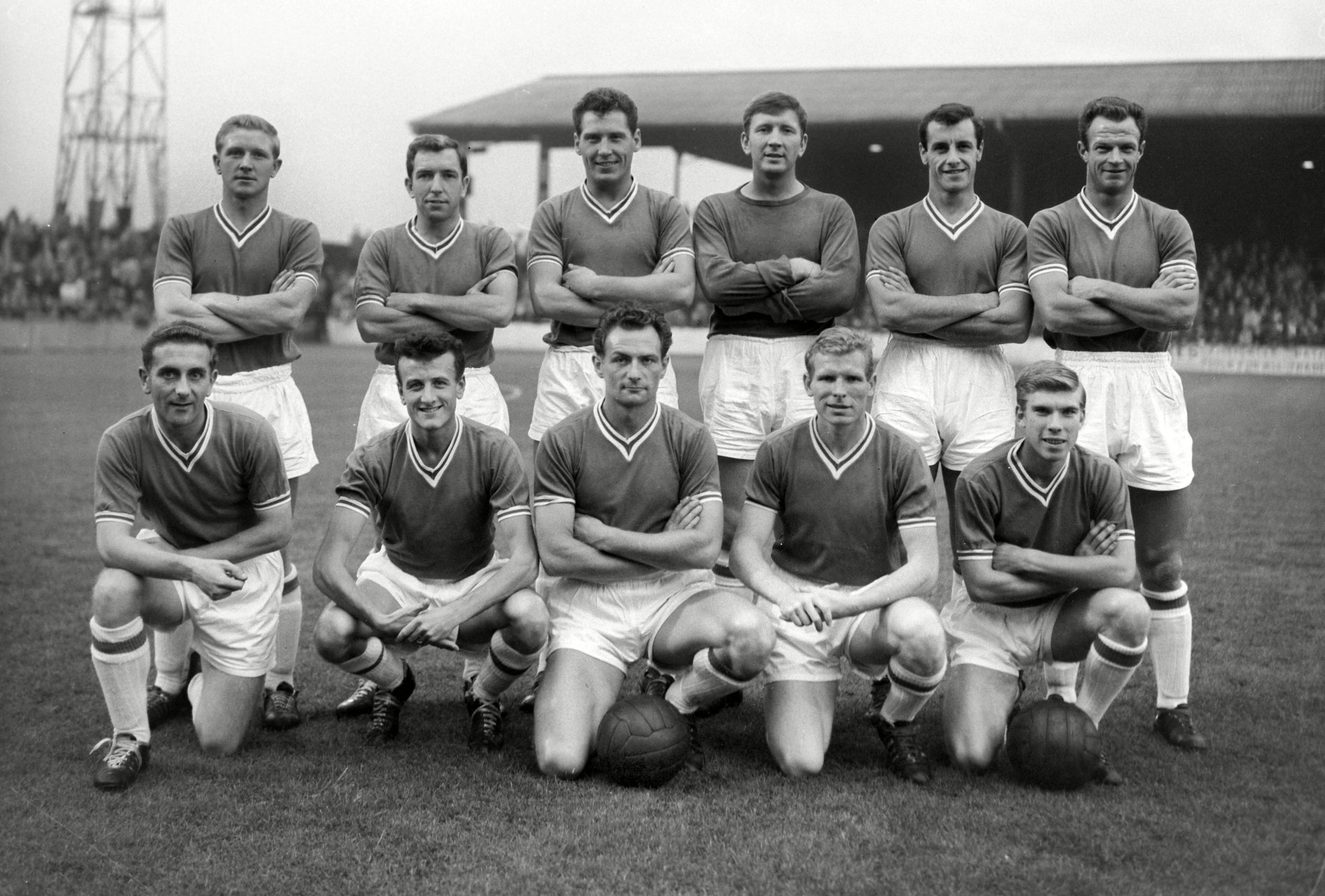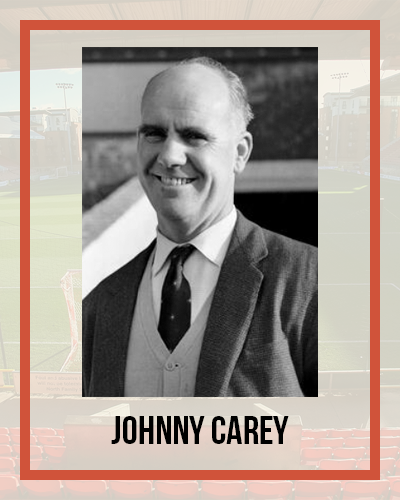
In the summer of 1961 the O’s were seeking a permanent manager after ‘caretaker’ Les Gore again refused to take on the role. It was rightly regarded as a coup when they appointed Dubliner Johnny Carey, who had won promotion for Blackburn and lifted Everton to fifth place in the First Division before being sensationally sacked in a taxi. Even more dramatic was taking ‘little Leyton Orient’ there a year after narrowly avoiding relegation to Division Three. A man of highest principle, he wanted that team to be given a chance in the top division and was reluctant to spend the directors’ money on strengthening it for almost five months; finally making a couple of £10,000 signings that proved too little too late.
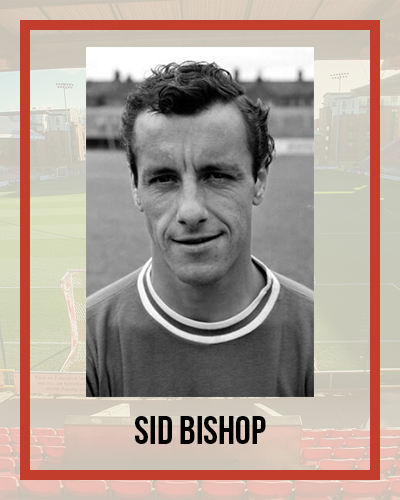
The rock of the defence at centre-half, Sid had barely missed a game in the preceding three seasons but suffered a nasty ankle injury in the over-physical home game with Sheffield Wednesday in late September. He was out for five League and League Cup games but played in every one thereafter against the country’s top strikers; and even got on the score-sheet with a winning goal from distance against Liverpool in the penultimate home game.
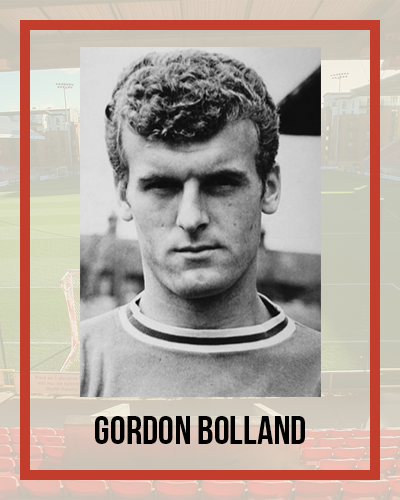
Signed as a bright young teenager from Chelsea towards the end of the promotion season, the lean Bolland replaced Derek Gibbs at inside-forward after the opening four games, appearing in the famous four September wins over West Ham, Manchester United, Everton and Fuham. It was in the following season that he really found his feet, scoring 16 times in 31 games to earn a move to Norwich City.
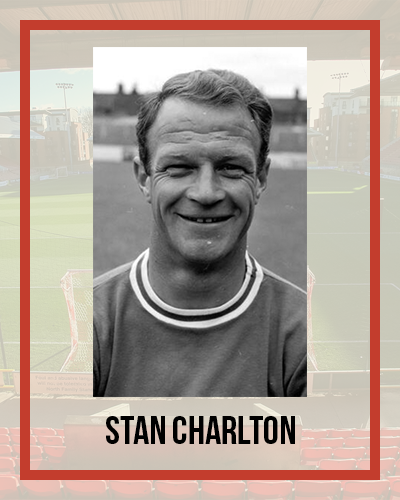
Orient’s hugely popular right-back and skipper, famed for his sliding tackles in the Brisbane Road mud, was the only player to appear in every one of the 51 games in the First Division season. Including the season before and after, he missed just one match out of 146. Only Peter Allen played more matches for the O’s than Stan’s 408.
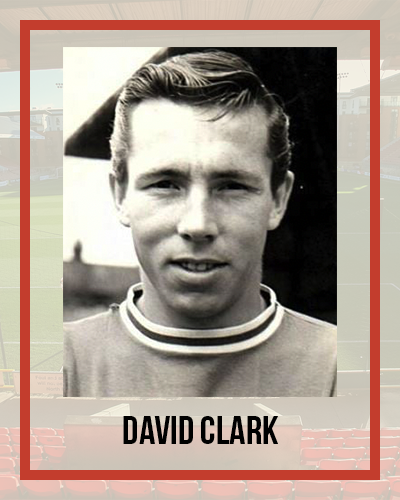
With only one first-team appearance to his name, as a full-back, Ilford-born Clark stepped up as Sid Bishop’s deputy at centre-half, helping to keep a clean sheet in the club’s first away win in the top division at Fulham. He stayed in for the next two games plus two League Cup ties with Newcastle, but never played again and was forced to retire two years later after breaking his leg.
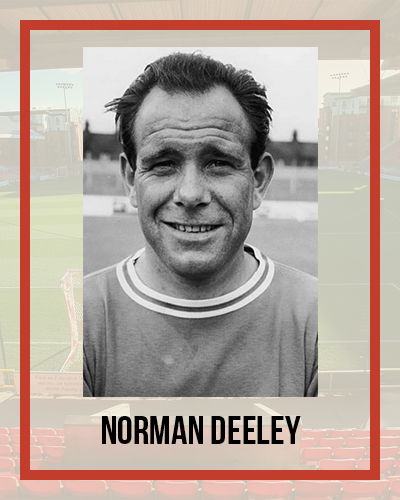
A star and England international from the great Wolves team of the late 1950s, the little winger was one of the few players in the squad with First Division experience – of which he had plenty. A regular fixture on the right wing until sustaining an injury at the start of April, he scored four goals early in the season, including the first at home to Everton.
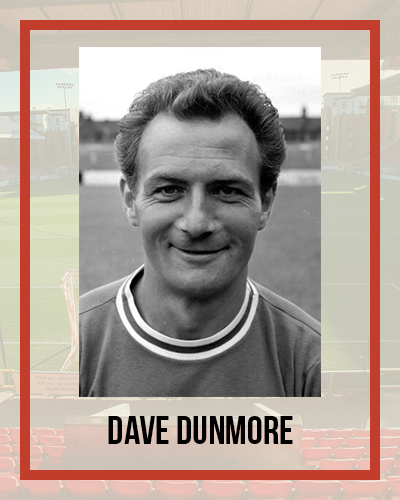
Given the tricky task of replacing Orient legend Tommy Johnston at centre-forward for the 1961-62 season, strapping Dave Dunmore led the line so well that he was being spoken about as a contender for England’s 1962 World Cup squad. Finishing with 22 goals, he understandably found the First Division harder but still managed half as many, the final one at Old Trafford being the last the O’s have ever scored in the top division.
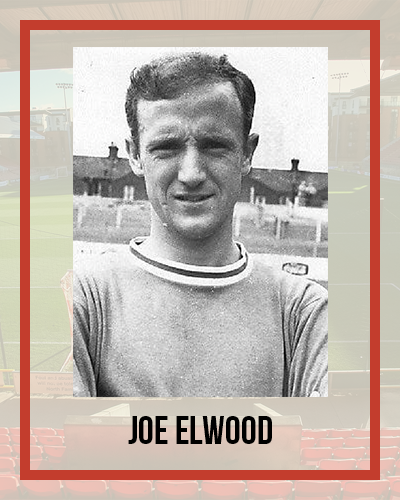
Northern Irishman Joe Elwood, who could play at inside- or outside-left, was one of those disappointed at not playing more games, especially as he had turned down the chance to move to Bristol City, against whom he once scored four in one game. It was the end of February before he was given a chance, immediately scoring to earn a point against Manchester City and he ended up playing 11 games.
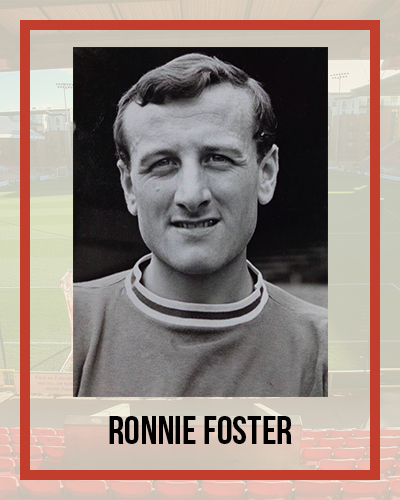
Slim young inside-forward Ron’s Orient career peaked a few months too early, in January 1962, when he was all over the back pages with the goal that earned the O’s an epic draw in the FA Cup away to First Division leaders Burnley. By the start of the new season he was struggling with a thigh injury and only broke into the team for four autumn games, including heavy defeats by Tottenham and Liverpool.
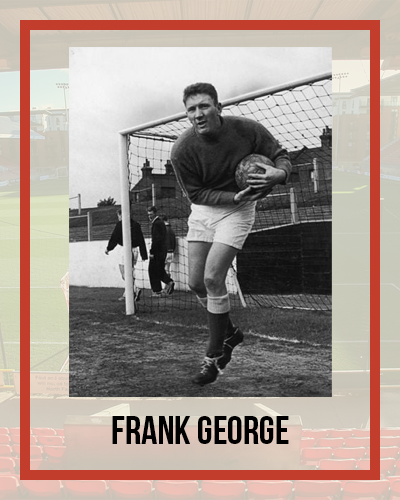
From being the O’s number one goalkeeper at the start of the promotion season, Frank George found himself in competition with not only Bill Robertson but in the First Division season with Mike Pinner. He was therefore restricted to only seven League games, conceding nine goals in the first two of them.
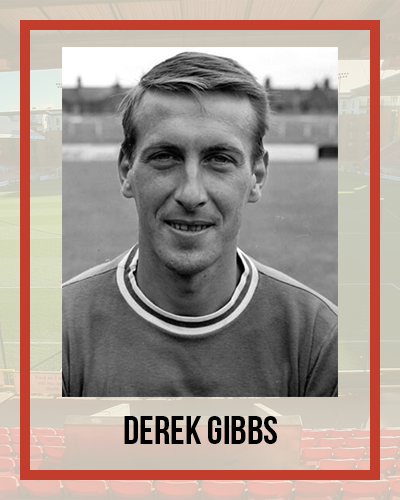
The powerful former Chelsea midfielder, who scored two crucial goals in the penultimate promotion game away to Luton, goes down in history as the first player to score for Leyton Orient in the top division. His tap-in at home to Arsenal on the opening day could not prevent defeat, and after four games he made way for Bolland but he still racked up 17 appearances, plus half a dozen Cup games.
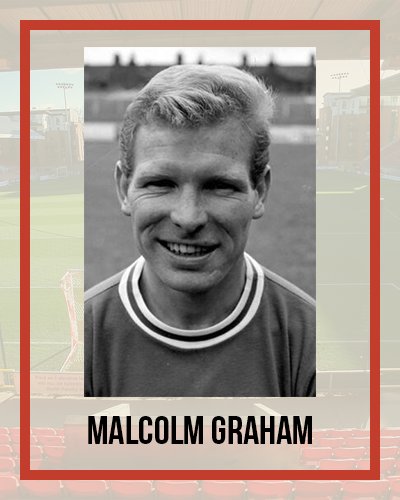
Another man whose name will forever be a part of Orient history. The Yorkshireman’s two goals against Bury on 28 April 1962 took the O’s into the top division and there he played nearly 30 League games, ending up with nine goals – and another five in the League Cup run, including a hat-trick against Chester.
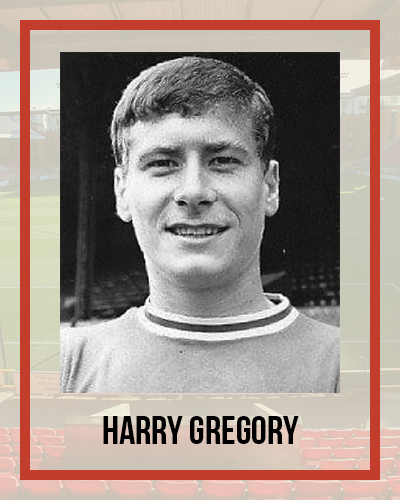
Local boy Harry (first name Gordon) was the star of the O’s youth team, who played centre-forward for England Youth against Switzerland at Brisbane Road alongside West Ham’s Martin Peters and Ronnie Boyce. He had only just turned 19 when given a run of five First Division games before Christmas, scoring on debut at home to Ipswich and then playing at Anfield and Highbury in quick succession.
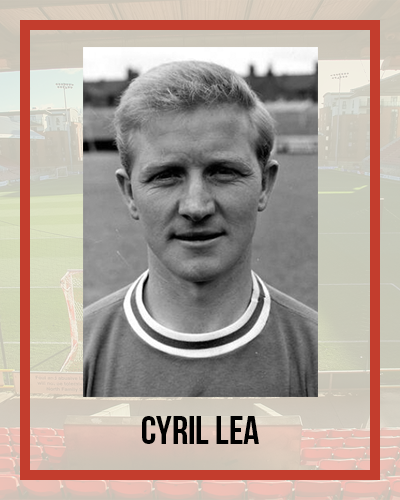
Of the two Welsh wing-halves who played so many games together for Orient, Cyril Lea on the left was the more defensive, dropping in alongside the centre-half as most teams adopted a back four. Admirably consistent and a fierce tackler, he missed only two games and was ever-present the season before and after – but never scored in 228 games for the club.
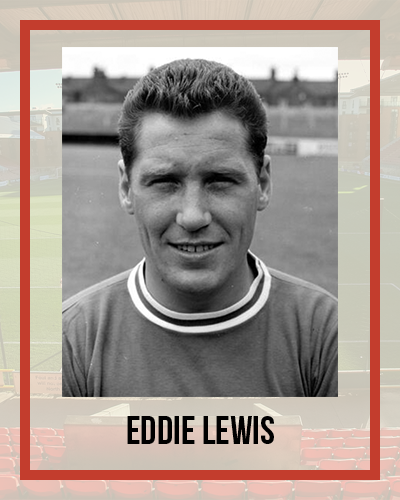
Once a Busby Babe, Eddie was still a centre-forward when signing from West Ham in 1958 but soon converted to left-back, where his strength and intelligence made up for a lack of pace. Despite missing the last two months of the season he had played in 28 League games and all nine Cup matches.
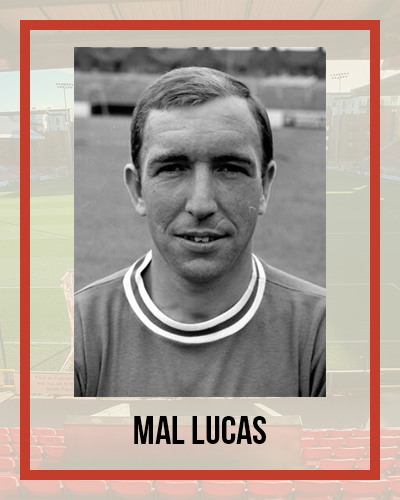
The more attacking of the two Welsh wing-halves, Mal Lucas won four caps for his country, all with the O’s, including one at Wembley in November. A fine technician, he made the number four shirt his own for three seasons before being snapped up by Norwich.
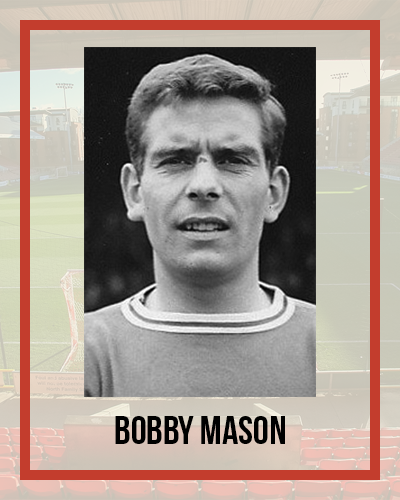
Recommended by his former Wolves team-mate Norman Deeley after briefly dropping into the Southern League with Chelmsford, inside-forward Bobby Mason arrived in March 1963 with a good reputation (two League championship winners’ medals) and played in all but two of the final 15 games, but without scoring.
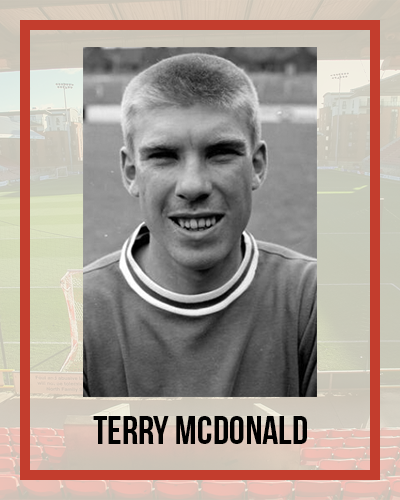
Rightly famed for the last-minute goal that beat Manchester United at Brisbane Road in September 1962, two footed left-winger Terry McDonald gave an even more impressive display four days later when Everton, that season’s champions, suffered their heaviest defeat by 3-0. Capable of going inside or outside his full-back, Terry – still a regular in the West Stand and Supporters Club in his eighties – was understandably upset at losing his place after being first choice for the first half of the season.
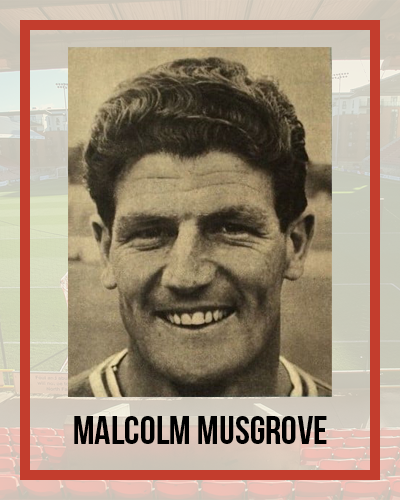
‘Muzzie’ had kept Terry McDonald out of the West Ham team, prompting his move to Brisbane Road, and then did so again when Johnny Carey signed him just before Christmas in the First Division season. Less inclined to tackle back but more direct than Terry, he had scored more than 80 goals for the Hammers, and added two valuable ones in the FA Cup ties with Hull City.
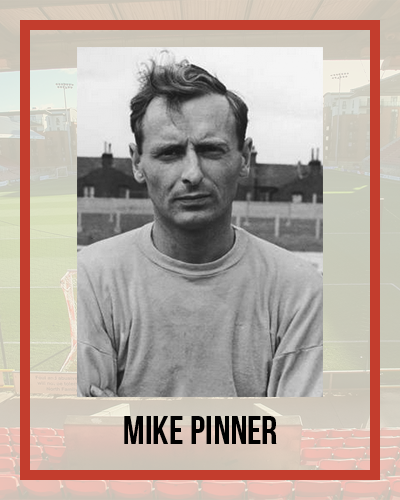
Although amateur Football League players were not unknown in the early 1960s, goalkeeper Mike Pinner was unusual in playing a handful of games for five different First Division clubs, including Manchester United. The well-spoken solicitor made more appearances for the O’s than any other club and had more games in 1962-63 than Frank George or Bill Robertson.
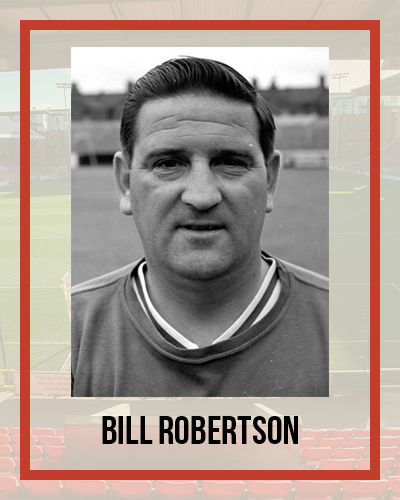
A Championship winner with Chelsea back in 1955, burly Glaswegian Robertson took over from Frank George for the promotion run-in and stayed first-choice keeper for the first 14 games in the top division before Mike Pinner replaced him. He was admired by team-mates for his positional sense and bravery.
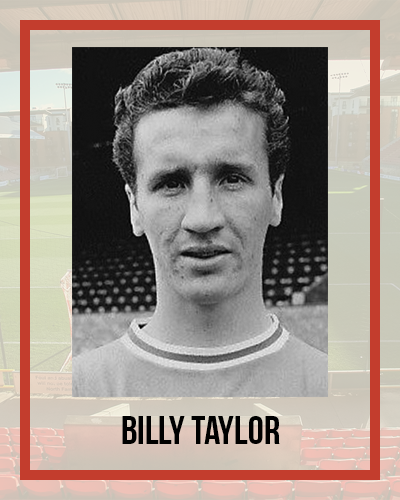
Another Scot, the slender Billy Taylor was originally an inside-forward who was converted to left-back like Eddie Lewis, for whom he deputised in two spells, getting half a dozen games in the autumn and then playing the last nine. He achieved wider fame as an England coach from 1974-81, when he died aged only 42.
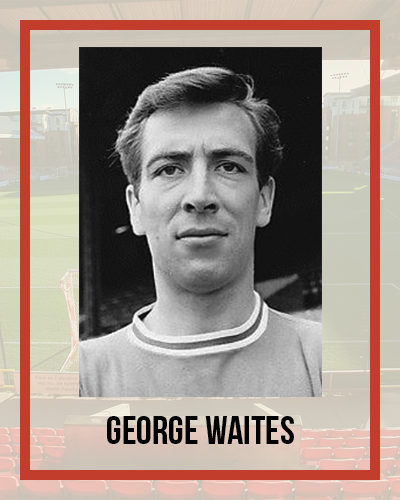
Determined to give a chance to the players who had earned promotion, manager Johnny Carey made only one signing in the summer of 1962 – bringing George Waites back from Norwich as a reserve forward. He was given just two League games, both in October, but in between them he scored a hat-trick in the record 9-2 League Cup win over Chester.
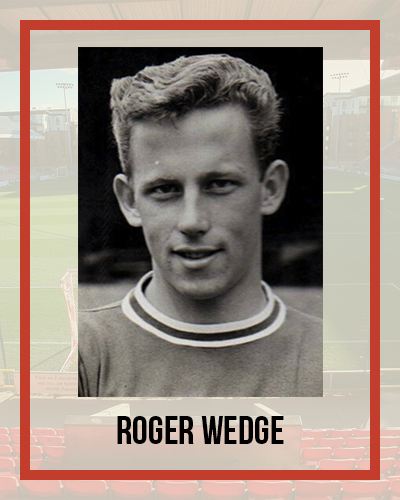
Outside-left Wedge stood in for Terry McDonald in the Chester League Cup game but was the only forward not to score and never added to that solitary first-team appearance.
